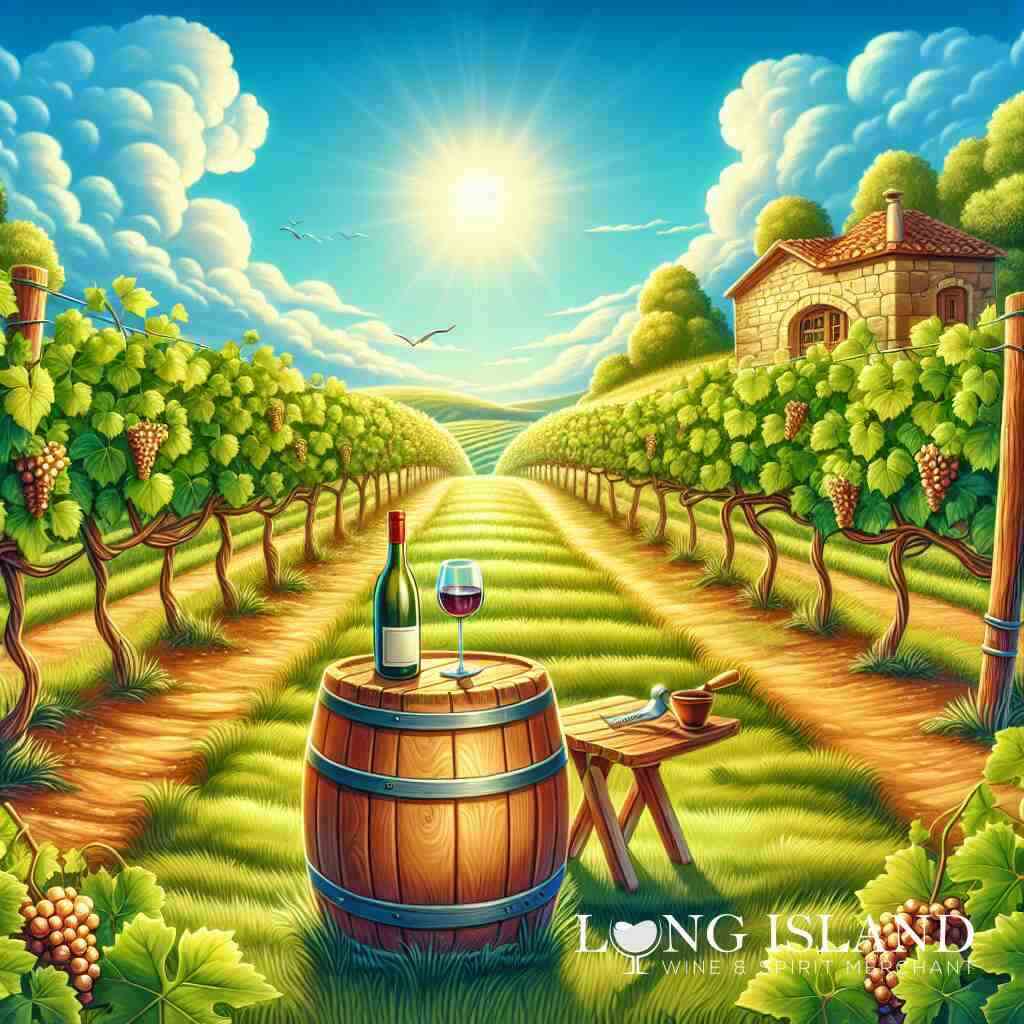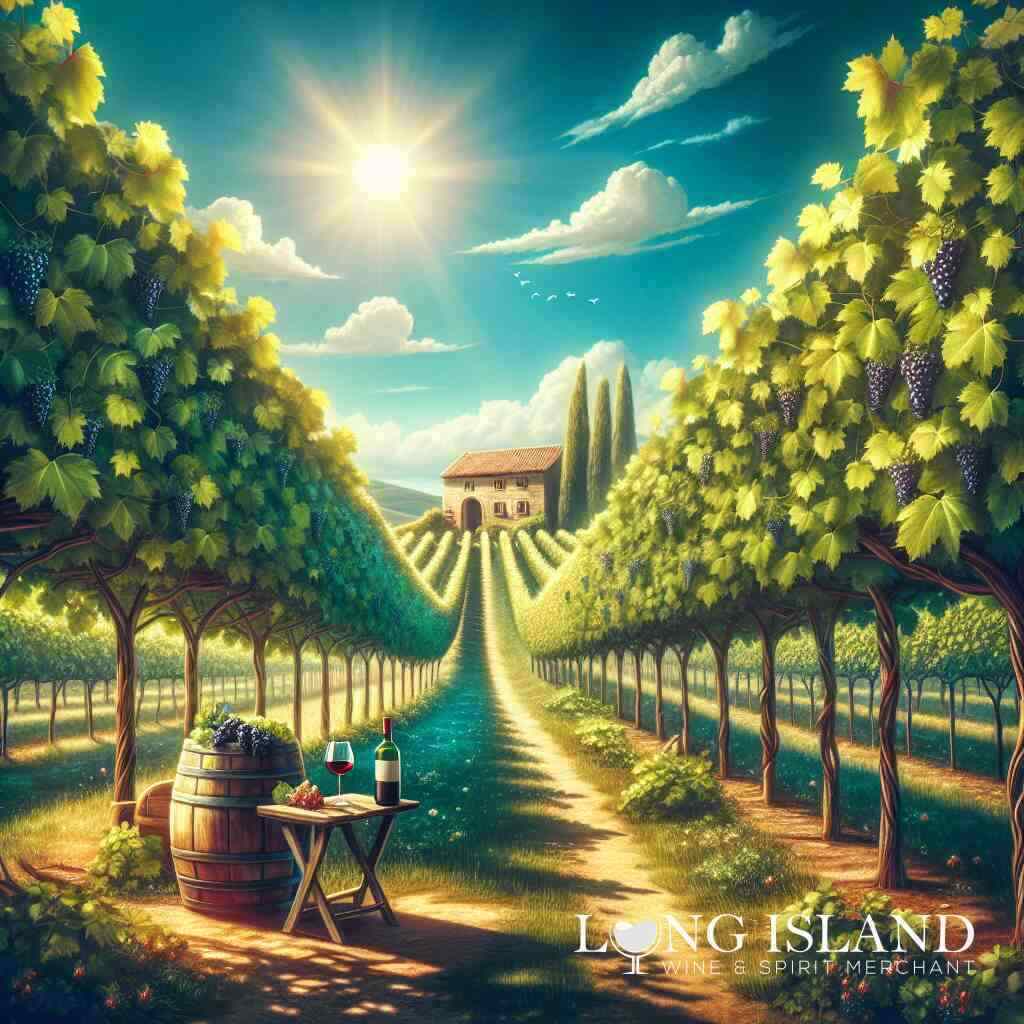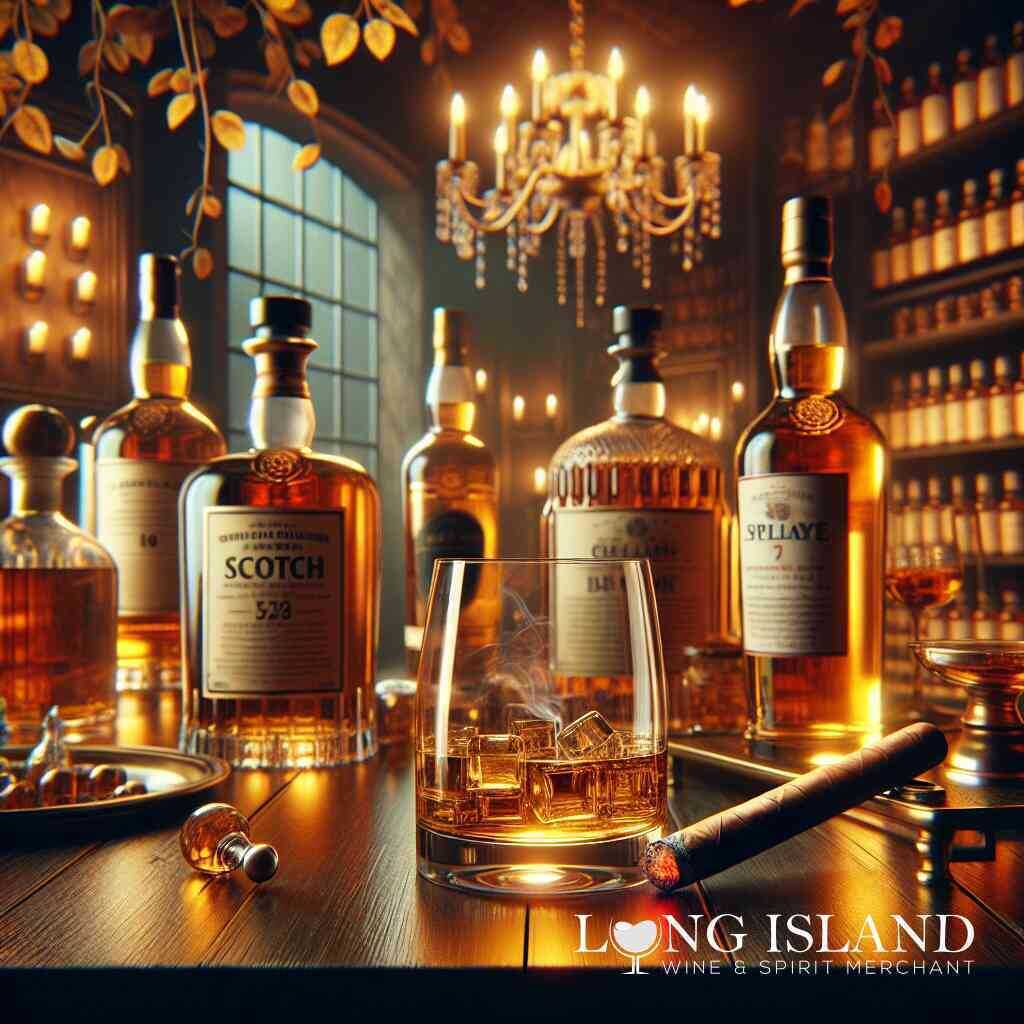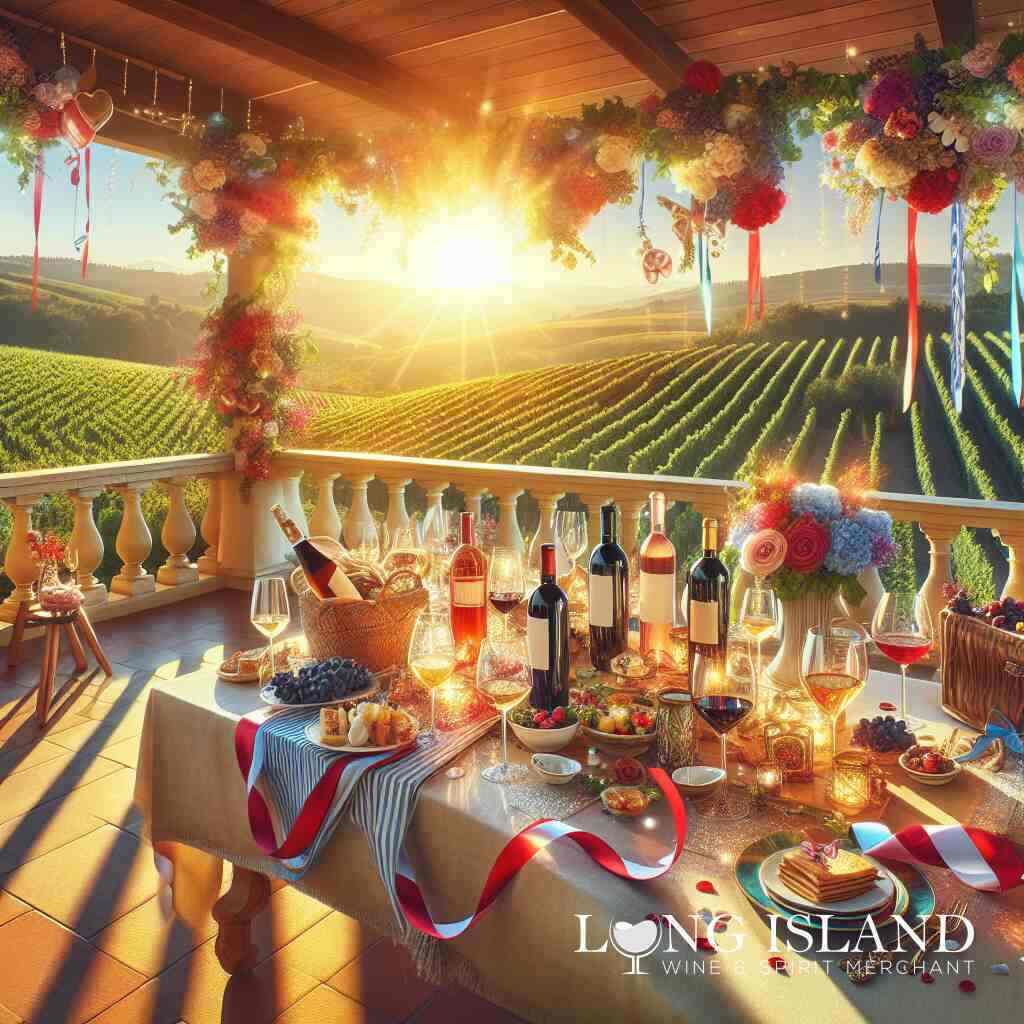
What Happens If You Drink Bad Wine?
August 19, 2024
Introduction to Wine Freshness and Quality
Understanding Wine Expiration
Expanding on common perceptions, the idea that wine constantly improves with age is a widespread misconception. In reality, the longevity and peak drinking window of wine varies greatly depending on its type, quality, and storage conditions. Most wines available in the market are intended for consumption within a few years of their release. Only a tiny fraction, typically high-end wines made with preservation in mind, can actually benefit from extended aging. Understanding wine expiration is vital to enjoying wine at its best. The degradation of wine over time is a natural process influenced by factors such as exposure to air, light, and temperature fluctuations, which can accelerate the aging process and lead to spoilage.
The Importance of Wine Storage for Preserving Quality
Proper wine storage is fundamental in preserving the wine’s quality and extending its shelf life. Ideal storage conditions involve maintaining a constant, cool temperature, high humidity levels to prevent cork drying, minimal light exposure, and stability to avoid agitation. These conditions help in slowing down the chemical reactions that degrade wine quality over time. Long Island Wine & Spirit Merchant recommends storing wine in a dedicated wine fridge or cellar to ensure these ideal conditions are met. Such investment in proper wine storage solutions pays off by maintaining the integrity and flavor profile of the wine, allowing you to enjoy each bottle as the winemaker intended.
Identifying Signs of a Well-Preserved Wine
A well-preserved wine showcases characteristics that reflect its varietal and terroir accurately. Visual clarity, vibrant aromas, and a balanced taste profile are vital indicators. On inspection, the wine should be free from excessive sediment or discoloration, which can signify spoilage or improper storage. A cork in good condition, without signs of leakage or mold, also points to practical preservation. Furthermore, opening a bottle should reveal fresh, inviting aromas rather than off-putting odors such as mustiness or vinegar, which indicate oxidation or contamination by bacteria. Whether you’re exploring the fine wine and good spirits products at Long Island Wine & Spirit Merchant or perusing your collection, knowing these signs will enhance your wine selection and enjoyment experiences.
The Science Behind Wine Spoilage
What Makes Wine Go Bad?
A complex interaction of chemical processes and environmental factors dictates the journey from a fine wine to a spoiled one. Primarily, wine goes terribly due to unwanted microbial activity, oxidation, and improper storage conditions. The wine spoilage begins when the delicate balance that preserves wine’s flavor, aroma, and appearance is tipped, leading to undesirable changes. Even the best wine stored under suboptimal conditions can degrade over time, losing its characteristic charm and turning into something unpalatable. Long Island Wine & Spirit Merchant, known for their expertise in wine in Commack, New York, emphasizes the importance of understanding these changes not just for storage but for enjoyment as well. Whether you’re looking to preserve a bottle of wine from your custom case or safeguard your wine selection at home, knowing what causes wine to deteriorate is the first step in preventing spoilage.
The Role of Oxygen in Wine Oxidation
Oxygen plays a pivotal role in wine aging and, paradoxically, in its spoilage as well. After sealing, minimal oxygen is trapped alongside the wine, which aids in the slow, beneficial maturation process. However, excessive oxygen exposure at any stage of winemaking to storage precipitates wine oxidation. This oxidative process leads to a loss of freshness and the emergence of stale, flat flavors. It can transform a vibrant rose wine or a crisp, dry white wine into something disappointingly dull and lifeless. The effects of oxygen on wine are akin to the process of a cut apple browning; what was once fresh and appealing becomes uninviting. Therefore, proper storage solutions, like those advised by Long Island Wine & Spirit Merchant, aim to minimize oxygen exposure and preserve the wine’s integrity.
How Bacteria and Yeast Affect Wine
Beyond oxidation, wine spoilage is also significantly influenced by the activities of certain bacteria and yeast. Not all microbial interaction is detrimental; in fact, yeast is essential in the initial fermentation process, converting sugars into alcohol. Trouble arises when unwanted strains of bacteria and yeast gain a foothold, often due to contamination or inadequate sanitation. These microorganisms can produce acetic acid (vinegar), ethyl acetate (solvent-like aromas), and other off-putting compounds. Wine bacteria can turn a rich red wine into a sour, vinegary mess and cause undesirable wine spoilage signs like cloudiness or odd sediments. Identifying bad wine symptoms early can prevent the displeasure of tasting spoiled wine and ensure the wine safety of your collection. From selecting Long Island wines known for their quality and stability to adopting proper wine storage solutions, vigilance against microbial spoilage is vital to preserving the pleasures of the bottle.
Recognizing Spoiled Wine
Visual Signs: Sediment and Cloudiness
The journey to understanding spoiled wine begins with the eyes. While certain wines, especially older ones, naturally develop sediment, excessive sediment or a cloudy appearance can often indicate a problem. This cloudiness or unexpected sediment might suggest bacterial growth or refermentation within the bottle, which is not intended in most wines. At Long Island Wine & Spirit Merchant, where a plethora of Long Island wines and others are carefully selected, recognizing these visual cues can help avert a less-than-pleasant wine experience. When inspecting a bottle from your wine rack, tilt it gently against a white background to better assess its clarity and look for any unusual signs that might indicate spoilage.
Olfactory Cues: Sour Wine Taste and Strange Odors
The nose is an incredibly sensitive detector of wine gone awry. A spoiled wine’s aroma can range from mildly off-putting to downright repulsive. Key olfactory signs of spoiled wine include a sour vinegar scent, the smell of a damp, musty basement, or the odor of nail polish remover, which points towards excessive acetic acid and ethyl acetate. A fine marsala wine, for example, should exude a rich, sweet aroma, and any deviation could suggest it’s been compromised. Engaging in a wine taste quiz online can sharpen your skills and help you identify when a wine’s bouquet doesn’t match its expected profile, safeguarding your sensory experience even before the wine touches your lips.
Tactile Feedback: Gritty Texture on the Palate
Another significant indicator of a wine that’s past its prime can be felt on the palate. A wine that leaves a gritty or sandy sensation in your mouth may contain tartrate crystals or excessive tannin precipitates, indicative of aging gone wrong or temperature abuse. Though certain textures in wine can be expected, such as the effervescence in sparkling wines or the body of robust red wine, an unexpected gritty texture is often unwelcome. Before serving wine from your wine glass, it’s wise to do a quick taste to ensure it feels right on the palate. Providers like Long Island Wine & Spirit Merchant, offering selections that range from sweet red wine to dry white wine, ensure that each bottle is a delight both to the taste buds and the touch.
Understanding these signs is pivotal in recognizing spoiled wine, saving you from an unpleasant tasting experience, and ensuring that each sip from your wine glass is as satisfying and safe as the winemakers intended.

Health Risks Associated with Drinking Spoiled Wine
The Reality of Wine Bacteria and Its Effects
Wine, a cherished beverage known for its varieties, flavors, and the pleasure it brings, can sometimes become a medium for bacteria and yeast that potentially spoils not just the taste but also poses health risks. Wine bacteria-which may include strains like Acetobacter, a genus known for turning wine into vinegar-can alter the wine’s chemical makeup. While most spoilage bacteria do not generally make the wine unsafe to drink, they can deteriorate the sensory aspects of wine, leading to unpleasant tastes and odors. Wine bacteria-which may include strains like Acetobacter, a genus known for turning wine into vinegar-can alter the wine’s chemical makeup. While most spoilage bacteria do not generally make the wine unsafe to drink, they can deteriorate the sensory aspects of wine, leading to unpleasant tastes and odors.
It’s important to understand, though, that not all bacteria in wine are harmful. In fact, certain bacteria are essential for wine fermentation and contribute to the wine’s character. The critical factor determining whether the presence of bacteria is beneficial or harmful depends on the stage of winemaking and the types of bacteria involved.
Is There a Risk of Wine Illness from Spoiled Bottles?
The question of whether spoiled wine can make you sick is a topic of interest for many wine enthusiasts and occasional drinkers alike. In general, consuming moderately spoiled wine- which is characterized by off-flavors and a slightly sour taste due to oxidation or minor bacterial spoilage- is unlikely to cause serious health issues beyond potential gastrointestinal discomfort for those with sensitive systems. Such discomfort may include mild stomach upset or, in rare cases, diarrhea and vomiting if significant bacterial contamination is present. However, it’s rare for wines to harbor bacteria or toxins capable of causing severe food poisoning or long-term health effects, primarily due to the alcohol content, which acts as a natural preservative.
Moreover, modern winemaking practices and hygiene standards significantly minimize the risk of pathogenic bacteria surviving in wine. For those interested in the balance between enjoyment and health, exploring how much wine is healthy to drink can provide valuable insights into moderate and responsible consumption patterns.
Debunking Myths: Bad Wine Headache or Something More?
One of the most common complaints associated with drinking wine, particularly those perceived as ‘bad’ or spoiled, is the dreaded wine headache. While there’s a tendency to attribute headaches to the wine’s spoilage, the truth often lies in components like histamines, tyramine, sulfites, or even just the alcohol itself rather than spoilage. Indeed, a wine that turns vinegary or exhibits off-flavors from oxidation isn’t likely to trigger headaches unless one is sensitive to these specific changes.
It’s crucial to differentiate between the effects of spoiled wine and the natural reactions some individuals have to compounds present in all wines. In many cases, staying hydrated, choosing high-quality Long Island wines, and being mindful of personal triggers can help avoid the unpleasant aftermath of wine consumption, allowing enthusiasts to savor the complexity and pleasure of fine wines without undue concern.
Understanding these aspects is critical to navigating the diverse world of wines safely and enjoyably, emphasizing the importance of storage, selection, and moderation in wine consumption.
What Happens If You Accidentally Drink Bad Wine?
Short-term symptoms of consuming sour wine
When you accidentally consume wine that has gone bad, your body may react in a few predictable ways. Initially, you might experience a range of short-term symptoms that, while generally not life-threatening, can be pretty uncomfortable. These symptoms could include gastrointestinal distress, such as nausea, vomiting, stomach cramps, and diarrhea. It is essential to understand that these reactions stem from the body’s attempt to rid itself of potentially harmful substances, including over-oxidized wine components or non-pathogenic bacteria that have affected the wine’s quality. The intensity of these symptoms can vary depending on the individual’s sensitivity and the degree of spoilage of the wine consumed. Interestingly, the process of making red wine vinegar at home mirrors the initial stages of wine spoilage, albeit in a controlled manner, leading to a safe and consumable product, unlike inadvertently spoiled wine that can result in discomfort.
Long-term health risks: separating fact from fiction
The fear surrounding the long-term health risks associated with consuming spoiled wine often eclipses the reality of its effects. It’s critical to dispel myths and provide clarity: drinking wine that has turned bad is unlikely to have severe long-term health consequences for someone without underlying health conditions. The primary risks of spoiled wine consumption lie in the short-term discomforts previously mentioned. Alcohol itself, when consumed in excess over long periods, poses a significant health risk, including chronic conditions affecting the liver, heart, and pancreas. Spoiled wine, due to its deteriorative chemical changes, may have reduced alcohol content, and its unpleasant taste typically discourages consumption before any long-term harm can occur. Thus, while the taste and experience of sour wine are far from desirable, they do not inherently carry with them severe long-term health risks.
When to seek medical attention
Knowing when to seek medical attention after consuming sour wine is crucial. Generally, if symptoms are mild and self-resolve within a few hours to a day, medical intervention may not be necessary. However, suppose you experience severe symptoms such as persistent vomiting, diarrhea leading to dehydration, a high fever, or any signs of an allergic reaction, including difficulty breathing and swelling of the face, lips, tongue, or throat. In that case, it is imperative to seek immediate medical care. These more serious reactions could indicate a more severe condition or an allergic reaction not directly related to the spoiled wine but triggered by coincidental factors. Moreover, individuals with compromised immune systems or pre-existing medical conditions should err on the side of caution and consult their healthcare provider following any adverse reactions to consuming spoiled wine. Always remember your health and safety are paramount.
Proper Wine Storage Solutions from Long Island Wine & Spirit Merchant
Tips for Optimal Wine Storage Conditions
Understanding and implementing ideal storage solutions are vital to ensuring your wine collection remains in pristine condition. At Long Island Wine & Spirit Merchant, we believe that the cornerstone of maintaining wine quality over time lies in creating the right environment for your wines. Optimal wine storage conditions include a consistent, cool temperature, ideally between 55-58°F, and a humidity level of about 70%. This prevents the cork from drying out and minimizes the rate of oxidation, keeping your wines vibrant and flavorful for longer. Additionally, wines should be stored away from direct sunlight and in a vibration-free space to preserve their integrity. For those looking to perfect their storage setup, exploring the best way to store wine in 2024 can offer modern, innovative solutions that cater to both the aesthetic and practical aspects of wine preservation.
How to Utilize Our Wine Racks for Maximum Freshness
Our wine racks at Long Island Wine & Spirit Merchant are designed not just for elegance but also to ensure the maximum freshness of your wine. Positioning is crucial; wine bottles should be stored horizontally to keep the cork moist, providing a tight seal against oxygen. This positioning also makes efficient use of space, allowing for an expanded collection. Our diverse range of wine racks can accommodate any space, from small kitchen setups to expansive, custom wine cellars. By utilizing our wine racks, you can create an organized, accessible, and visually appealing display that does more than showcase your collection- it preserves the wine’s quality until the moment you’re ready to enjoy it.
Services to Help with Your Wine Preservation Needs
Long Island Wine & Spirit Merchant is dedicated to helping wine enthusiasts and collectors alike preserve their wine to its peak quality. Beyond offering high-quality wine racks, we provide comprehensive wine services tailored to the needs of our patrons. Our services include personalized consultations to help you select the right wine storage solutions and maintenance tips to ensure your wine stays in optimal condition. Furthermore, our team can help those seeking professional assistance with the installation of custom wine cellars and cooling systems designed to meet the specific requirements of your collection. For more information on how we can assist with your wine preservation needs, feel free to contact Long Island Wine & Spirit Merchant. Our expertise and dedicated services make wine storage and preservation effortless, allowing you to enjoy your collection at its best for years to come.

Preventing Wine Spoilage
Selecting Wines with Longevity in Mind
When it comes to wine, not all bottles are created equal. Some are meant to be enjoyed young, while others possess the complexity and structure needed to age gracefully. The key to preventing wine spoilage begins at the selection stage. Understanding the varieties, regions, and vintages that lend themselves to aging can save you from the disappointment of a spoiled bottle down the line. For instance, robust red wines with high tannin levels, such as Cabernet Sauvignon, and certain white wines, like Chardonnay, with a solid acidic backbone, are known to have a more significant potential for aging. Long Island Wine & Spirit Merchant offers an extensive range of Long Island Liquor Store selections, including wines that are known for their longevity. By choosing wines with aging potential, you’re investing in a future of wine enjoyment free from the pitfalls of premature spoilage.
Understanding the Role of Wine Bottle Sizes and Types
The size and type of a wine bottle can significantly influence the aging process. Larger bottles, such as magnums and jeroboams, offer a slower aging curve due to the ratio of wine volume to oxygen in the sealed bottle. This slower aging process can enhance the wine’s complexity and flavor profile over time. Conversely, smaller bottles, mainly splits or half bottles, tend to age more rapidly due to the increased impact of oxygen per volume of wine. The choice of bottle closure, whether traditional cork, screwcap, or synthetic cork, also plays a crucial role in the wine’s exposure to oxygen and its resultant aging trajectory. By understanding the implications of bottle sizes and types, enthusiasts can make informed decisions that align with their wine preservation goals.
The Benefits of Professional Wine Services and Advice
Navigating the intricacies of wine selection, storage, and aging can be daunting, even for the most enthusiastic wine lover. This is where the benefits of professional wine services and advice become invaluable. Long Island Wine & Spirit Merchant offers comprehensive wine services that cater to every aspect of the wine experience. From personalized recommendations based on your taste preferences and aging goals to expert advice on storage conditions and management, their team can guide you through the process of building a collection designed to withstand the test of time. Additionally, their wine-tasting events provide a hands-on opportunity to learn directly from experts and fellow enthusiasts alike, empowering you to make choices that prevent wine spoilage and enhance your enjoyment of this timeless beverage.
How to Safely Dispose of Spoiled Wine
Ethical Disposal Methods
When you encounter a bottle of wine that has gone bad, it’s essential to consider the most ethical ways to dispose of it. Pouring spoiled wine down the drain might seem like the easiest solution, but it’s not always the most environmentally friendly option. Instead, consider using the wine as a compost additive. Wine, being an organic substance, can contribute to the composting process by adding acidity that helps in breaking down other compost materials. This method not only disposes of the wine safely but also contributes to a greener environment by creating nutrient-rich soil for gardening.
Before adding wine to your compost, ensure that it doesn’t contain any harmful chemicals or preservatives that could disrupt the composting process or harm plant life. For those without a compost setup, contacting local waste management services for recommendations on proper disposal practices can provide alternative solutions that comply with environmental standards.
Creative Uses for Wine Gone Bad
Spoiled wine doesn’t always have to go to waste. There are several creative ways to repurpose it around your home and garden. One such method is using wine as a cleaning agent for windows. The acidic nature of the wine makes it effective at removing hard water stains and giving the glass a streak-free shine. Dilute the wine with water, spray it on the windows, and wipe with a clean cloth. There are several creative ways to repurpose it around your home and garden. One such method is using wine as a cleaning agent for windows. The acidic nature of the wine makes it effective at removing hard water stains and giving the glass a streak-free shine. Dilute the wine with water, spray it on the windows, and wipe with a clean cloth.
Due to its acidity and alcohol content, wine can serve as a natural pesticide in the garden. Spraying a mixture of water and spoiled wine on plants can deter pests without the use of harsh chemicals. Additionally, wine can be used in culinary applications such as making vinegar. By allowing the wine to oxidize and ferment fully, you can create a homemade vinegar that’s great for cooking or salad dressings. This transformation not only reduces waste but also adds a unique, homemade touch to your culinary creations.
Ensuring Wine Bottle Recycling
Once you’ve disposed of the wine, don’t forget about the bottle. Wine bottles are recyclable and can be repurposed in numerous ways. Many recycling centers and services accept glass bottles, making it easy to ensure they don’t end up in landfills. However, the possibility for creativity doesn’t stop at recycling. Wine bottles can be upcycled into decorative items such as candle holders, plant waterers, or even chandeliers. By investing a little time and creativity, you can give a second life to wine bottles, contributing to both home decoration and environmental sustainability. Wine bottles are recyclable and can be repurposed in numerous ways. Many recycling centers and services accept glass bottles, making it easy to ensure they don’t end up in landfills. However, the possibility for creativity doesn’t stop at recycling. Wine bottles can be upcycled into decorative items such as candle holders, plant waterers, or even chandeliers. By investing a little time and creativity, you can give a second life to wine bottles, contributing to both home decoration and environmental sustainability.
Moreover, participating in programs that focus on wine bottle recycling or repurposing can amplify your impact. Check with your local recycling facilities or community environmental programs to see if they offer specific services or initiatives geared toward wine bottle reuse. By taking these steps, you’re not just disposing of lousy wine and bottles responsibly- you’re also contributing to a more sustainable and creative solution to waste.
Conclusion: Embracing Wine Safety and Enjoyment
Learning from Bad Wine Experiences
Bad wine experiences, while unfortunate, serve as valuable lessons in the journey of wine appreciation. They underscore the importance of proper storage, the ability to recognize signs of spoilage, and the nuanced understanding of wine’s shelf life. Such experiences prompt us to reconsider our approach to selecting, storing, and enjoying wines, turning potential disappointments into opportunities for learning and growth. At Long Island Wine & Spirit Merchant, we believe in using these moments as stepping stones towards deepening our appreciation for the art and science of wine. By sharing insights and tips through our wine-tasting blog by Long Island Wine & Spirit Merchant, we aim to equip our patrons with the knowledge needed to navigate the vast world of wines, turning every sip into an occasion for joy and discovery.
Enhancing Your Wine Selection and Consumption Practices
Improving one’s wine selection and consumption practices involves a blend of knowledge, experimentation, and mindful enjoyment. Knowing the types of wines that suit your palate, understanding how different storage conditions affect wine, and being able to discern the right time to open a bottle are all essential skills for any wine enthusiast. Exploring wines from various regions, experimenting with new varietals, and participating in wine tastings can broaden your horizons and refine your preferences. Furthermore, integrating responsible drinking habits and appreciating the nuances of each glass can enhance not only the taste experience but also the overall enjoyment of wine. Long Island Wine & Spirit Merchant is committed to supporting these endeavors by offering a curated selection of wines, personalized recommendations, and educational events that celebrate the rich diversity of the wine world.
Long Island Wine & Spirit Merchant’s Commitment to Wine Excellence
At Long Island Wine & Spirit Merchant, our passion for wine excellence is at the core of everything we do. From meticulously selecting each bottle that enters our store to providing expert advice tailored to our customers’ preferences, our dedication is unwavering. We are proud to serve as a vital resource for the community in Commack, New York, and beyond, offering not only a premier selection of wines and spirits but also a platform for education and enjoyment. Whether you’re a seasoned connoisseur or a curious newcomer, our team is here to guide you through the remarkable journey of wine discovery. Our commitment to excellence extends beyond our inventory to encompass the entire wine experience, ensuring that each visit to Long Island Wine & Spirit Merchant is memorable and rewarding. Our commitment to excellence extends beyond our inventory to encompass the entire wine experience, ensuring that each visit to Long Island Wine & Spirit Merchant is memorable and rewarding.
Frequently Asked Questions
Question: What are the immediate health effects of drinking lousy wine, and how can Long Island Wine & Spirit Merchant help avoid them?
Answer: Drinking sour wine can lead to immediate health effects such as gastrointestinal discomfort, including nausea and stomach cramps, primarily due to wine spoilage signs like oxidation or bacterial contamination. At Long Island Wine & Spirit Merchant, we ensure the wine safety and quality of our selection, offering only the best wine that’s stored under optimal conditions to minimize the risk of spoilage. Our expertise in fine wine and good spirits, along with a rigorous selection process, assures customers of getting wine that enhances their drinking experience without the worry of lousy wine effects.
Question: How can one identify signs of spoiled wine to ensure wine-tasting safety?
Answer: Identifying signs of spoiled wine involves looking out for symptoms such as sour wine taste, off-putting odors (like vinegar or mustiness), and visual cues, including unexpected sediment or cloudiness. At Long Island Wine & Spirit Merchant, we educate our customers on these spoilage signs through our wine-tasting events and personal consultations. Our commitment to wine excellence extends to guiding customers in recognizing these indicators, ensuring each sip from your wine glass is as satisfying as intended, and maintaining both wine quality and freshness.
Question: In the blog post “What Happens If You Drink Bad Wine?”, the importance of wine storage is highlighted. Can Long Island Wine & Spirit Merchant recommend the best wine storage solutions for preserving wine freshness?
Answer: Absolutely; proper wine storage is crucial for preserving the freshness and extending the longevity of your wine selection. Long Island Wine & Spirit Merchant offers expert recommendations on optimal wine storage conditions, including temperature, humidity, and minimal light exposure, through our comprehensive range of products and services. Our wine racks and custom wine cellar installations are designed to ensure that your wine is stored in conditions that maintain its integrity, aroma, and taste profile, safeguarding against wine spoilage.
Question: Can spoiled wine contribute to a lousy wine headache, and how does Long Island Wine & Spirit Merchant ensure the high quality of their wine to prevent this?
Answer: While the myth of spoiled wine causing headaches is common, lousy wine headaches are more typically related to components like histamines or sulfites rather than spoilage. At Long Island Wine & Spirit Merchant, we focus on providing wines that are stored and handled with the utmost care to prevent oxidation and spoilage, reducing the risk of such discomfort. Our selection process prioritizes wines renowned for their quality and stability, ensuring our customers enjoy a premium wine experience without the worry of adverse effects such as lousy wine headaches.
Question: What role does Long Island Wine & Spirit Merchant play in promoting wine safety and quality?
Answer: Long Island Wine & Spirit Merchant is at the forefront of promoting wine safety and quality through our meticulous selection process, educational initiatives, and personalized services. We go beyond just selling wine and spirits; we provide valuable information on wine storage, spoilage prevention, and selecting the right wine for enjoyment through our wine taste quiz and expert consultations. Our dedication to fine wine and good spirits ensures our customers have access to a premium selection that’s not only safe to enjoy but also elevates their wine experience.



